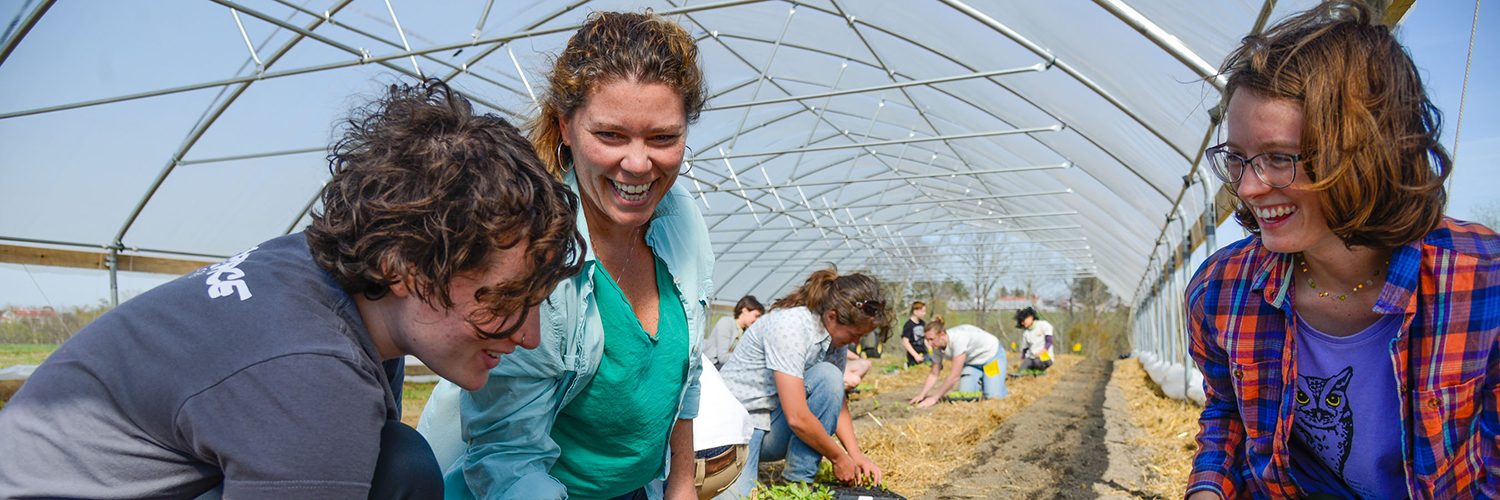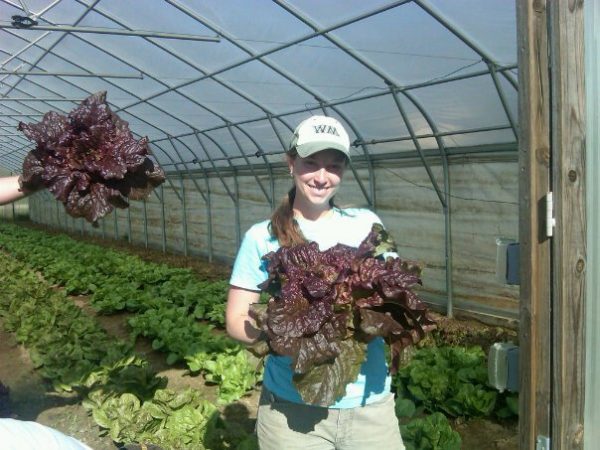
Current Students
.

Learn hands-on sustainable agriculture production, research, and community engagement through our summer Sustainable Agriculture Internship program at CEFS. |
More Than Just Courses
.
At NC State, students are encouraged to learn beyond the classroom through opportunities on campus, in the community, across the nation, and around the globe. In the Agroecology and Sustainable Food Systems major, you will have a diversity of internships, research experiences, and other opportunities available to help focus your interests.
A research or internship experience is required for the major and most students complete these during the summer of their sophomore or junior year. Highly sought after summer programs typically have applications due in February to March. You will work with your adviser the fall beforehand to help find one that best fits your needs. These internship and research experiences are critical in shaping your career path and success after graduation.
.
Internships
.
Internships are important hands-on learning opportunities to “try out” a particular career path or obtain a more focused mentored learning experience. Below are resources to get started for finding internships in agroecology and sustainable food systems:
- Department of Horticultural Science Internship and Jobs on Twitter (NC)
- CALS Career Services (NC)
- Center for Environmental Farming Systems (CEFS) Sustainable Agriculture Internship Program (NC)
- USDA Sustainable Agriculture Education and Internship Directory (Nationwide)
- National Sustainable Agriculture Information Service (ATTRA) Directory of Sustainable Farming Internships and Apprenticeships (Nationwide)
- Rodale Institute Internship Programs (PA)
- USDA Pathways Program (Nationwide)
- Research Experiences for Undergraduates (REU) NSF Programs (Nationwide)
.
Research
.
There are many opportunities for students to be involved in cutting edge research in sustainable agriculture and foods systems at NC State. Our agroecology students have a competitive edge for these positions, which are often paid. Below are steps to finding research opportunities at NC State.
- Meet with your adviser and they can help find research opportunities match your interests.
- Check out resources and student grants available at the NC State Office of Undergraduate Research.
- Be proactive and explore current sustainable agriculture and food system research from CEFS faculty.
.
Scholarships
.
As a cross departmental program, Agroecology and Sustainable Food Systems students have access to scholarships from both the Department of Crop & Soil Sciences and the Department of Horticultural Science as well as the College of Agriculture and Life Sciences (CALS). CALS awards more than $1 million in scholarships and fellowships each year, typically in the range of $1000 to $2000. Below are NC State scholarship resources available to our students.
- The CALS Scholarship page provides all you need to know about CALS and departmental scholarships available and how to apply.
- With Pack ASSIST, NC State’s Scholarship Application Portal and Search Tool, you can find and apply to university-level scholarships.
- You can find out more general information about financial aid on the Student Services Center’s Financial Aid page.
.
Study Abroad
.
In agriculture and food systems, there are many diverse opportunities around the world to get involved in and learn from. Explore the CALS Study Abroad page and the NC State’s Study Abroad page to find out how to incorporate an international experience into your degree program.
.
Alternative Service Breaks
.
You can make a positive impact and learn at the same time through engaging in service to communities around the world or right here in NC during a school break through our Center of Student Leadership, Ethics, and Public Service’s Alternative Service Breaks.
